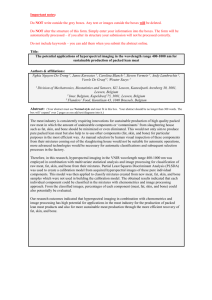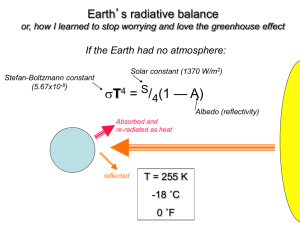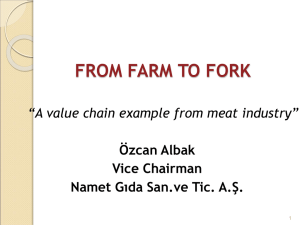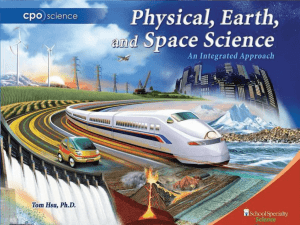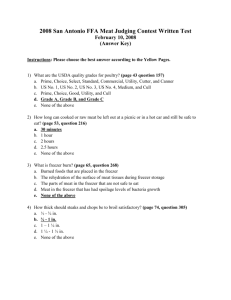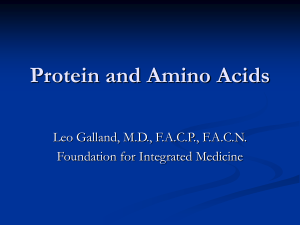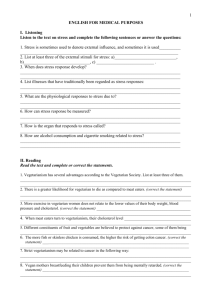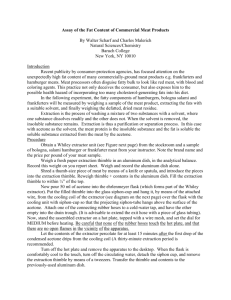Teaching notes
advertisement
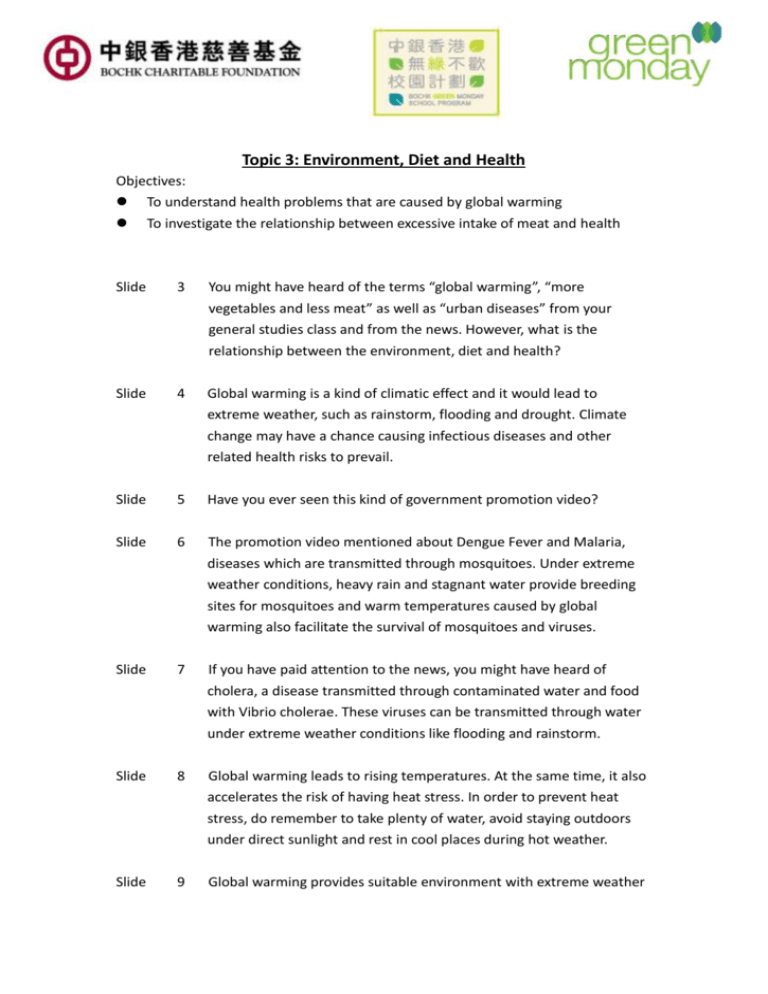
Topic 3: Environment, Diet and Health Objectives: To understand health problems that are caused by global warming To investigate the relationship between excessive intake of meat and health Slide 3 You might have heard of the terms “global warming”, “more vegetables and less meat” as well as “urban diseases” from your general studies class and from the news. However, what is the relationship between the environment, diet and health? Slide 4 Global warming is a kind of climatic effect and it would lead to extreme weather, such as rainstorm, flooding and drought. Climate change may have a chance causing infectious diseases and other related health risks to prevail. Slide 5 Have you ever seen this kind of government promotion video? Slide 6 The promotion video mentioned about Dengue Fever and Malaria, diseases which are transmitted through mosquitoes. Under extreme weather conditions, heavy rain and stagnant water provide breeding sites for mosquitoes and warm temperatures caused by global warming also facilitate the survival of mosquitoes and viruses. Slide 7 If you have paid attention to the news, you might have heard of cholera, a disease transmitted through contaminated water and food with Vibrio cholerae. These viruses can be transmitted through water under extreme weather conditions like flooding and rainstorm. Slide 8 Global warming leads to rising temperatures. At the same time, it also accelerates the risk of having heat stress. In order to prevent heat stress, do remember to take plenty of water, avoid staying outdoors under direct sunlight and rest in cool places during hot weather. Slide 9 Global warming provides suitable environment with extreme weather conditions which facilitate the survival and spread of virus and bacteria .Currently, there is no massive outbreak in Hong Kong but it does not imply that we are riskless. We cannot deny the fact that we might travel to the infected regions. Both children and adults can be infected and there is no age limit for diseases. It relates to everyone of us. Slide 10 What can affect our health other than the environment? Try to think about when you are at school. What would you do besides attending lessons? Try to think about the theme of today. Next, we are going to talk about diet. Slide 11 Which of the following meal sets will you choose? Slide 12 What makes a healthy meal? We can make reference to the food pyramid as well as the 321 meal - grains and cereals should take three portions (such as noodles, rice); two portions should be vegetables and one portion should be food that is rich in protein. Sources of protein not only include meat, but also beans, egg and dairy products. Slide 13 Meat provides nutrients such as fat, protein and minerals including copper, chromium, folic acid, iron, magnesium, potassium, selenium and zinc. There are also fat-soluble vitamins A, B, D and K intake from the fat. However, fat is not the only source of these nutrients. A balanced vegetarian diet also contains these nutrients. Slide 14 It is suggested that we limit the intake of red meat (such as meat and pork) to less than 500 g (cooked weight) a week. It is about 5-6 servings, each equivalent to the size of 3 table tennis balls. Total fat should not exceed 30% of total energy intake. Slide 15 Slide 16 Over-consumption of meat may accumulate fat and energy, resulting in obesity. Overweight and appearance seems to have a small impact. What is more is that overconsumption of meat would lead to high blood pressure, high cholesterol, cancer, type 2 diabetes, heart disease and early death. Slide 17 Animal waste can pollute the waterways as well as destroy the aquatic ecosystem. Growing grains for feeding animals consumes water resources as well as land. The burping and flatulence of cattle would generate a huge amount of greenhouse gases. Besides, meat production, processing, packaging and shipping will all produce a large amount of greenhouse gases. Slide 18 Over-consumption of meat not only damages our physical health, but also the environment. More greenhouse gas emission worsens the global warming problem. Global warming and extreme weather conditions would in turn affect our physical health.



